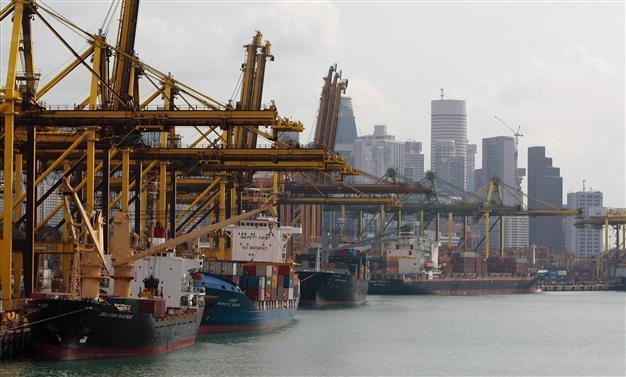Pacific trade talks stumble on environment protection
LONDON - Reuters

The environmental chapter has been among the most disputed elements of the talks for the Trans-Pacific Partnership pact negotiated between the US and 11 Pacific nations. REUTERS Photo
An ambitious trade pact being negotiated among Pacific Rim nations so far fails to properly protect endangered species and could undermine existing safeguards for the environment, environmental groups said Jan. 15.
Documents released by the whistle-blowing group WikiLeaks show countries negotiating the Trans-Pacific Partnership (TPP) did not plan to sanction trading partners who break environmental promises - an issue that has caused a rift between the United States and others in the bloc and is an obstacle to finalizing the deal.
The TPP would cover almost 40 percent of the global economy and create a free trade zone reaching from North America to Japan and New Zealand, and the United States is keen to wrap up talks in the coming months.
But the World Wildlife Fund said a November draft of the environment chapter text, which was among the documents released by WikiLeaks, lacked teeth and showed countries were backsliding on past promises and their responsibility to stamp out trade in endangered species.
“The most glaring omission is the lack of fully enforceable environmental provisions,” World Wildlife Fund senior program officer Vanessa Dick said.
“If parties do not meet obligations within the environment chapter, then there is no enforceability, there would be no applicable sanctions.”
The United States said it would not back down on making the promises enforceable, while other TPP partners downplayed the stand-off and said the negotiations were a work in progress.
The leaked documents include a report from the chair of the TPP’s environment working group urging compromise and describing dispute resolution as a “particularly challenging” issue.
“While the chair sought to accommodate all the concerns and red lines that were identified by parties regarding the issues in the text, many of the red lines for some parties were in direct opposition to the red lines expressed by other parties,” the report said.
“It bears emphasizing that it is these differences that have prevented the Environment Working Group from reaching agreement on all aspects of the chapter.”
Sanctions stir dissentThe draft text shows a clash between the United States and other countries - Australia, Canada, Mexico, Japan, Brunei, Malaysia, Vietnam, Chile, Peru, New Zealand and Singapore - over how to proceed if pledges are not met. The draft text, dated Nov. 24, 2013, states that at the end of consultations and arbitration, parties should come up with a “mutually satisfactory action plan.”
According to the chair’s report, all countries were on board with the process except the United States, which wanted environmental breaches to be treated like commercial breaches, including the option of trade sanctions - something environmental groups say is essential to enforce TPP promises. The United States also wanted to include a list of specific multilateral agreements on environmental issues, such as ozone depletion and whaling, in the text but athe move was opposed by most other countries.
